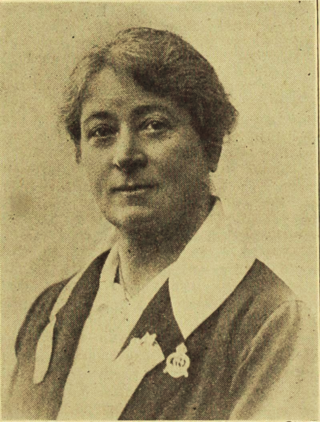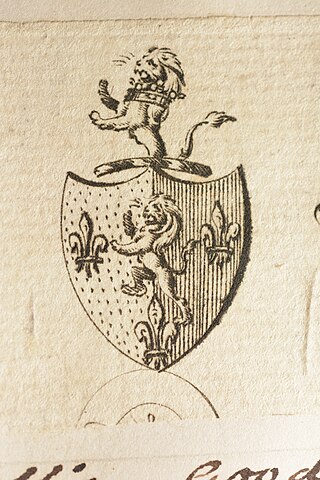Other uses
- A sept of the Scottish Clan Farquharson
| Origin | |
|---|---|
| Word/name | Scotland |
Findlay is a surname of Scottish origin.

MacLeod, McLeod and Macleod are surnames in the English language. The names are anglicised forms of the Scottish Gaelic MacLeòid, meaning "son of Leòd", derived from the Old Norse Liótr ("ugly").

The English surname Percy is of Norman origin, coming from Normandy to England, United Kingdom. It was from the House of Percy, Norman lords of Northumberland, and derives from the village of Percy-en-Auge in Normandy. From there, it came into use as a mostly masculine and rarely feminine given name. It is also a short form of the given name Percival, Perseus, etc.
Pringle is a Scottish surname.
Robson is an English surname. Originating in North East England, and derived from ‘Son of Robert’. The name, Robson, can be found all over the North East of England and over the border into Scotland. The Robson family was also a notorious Border Reaver clan being one of the four riding clans of North Tynedale, with the family stronghold being Falstone in Northumberland. Notable people with the surname include:
Paterson is a Scottish and Irish surname meaning "Father's son" or "son of Patrick". In Connacht, and Ulster, the name is considered to be an Anglicised form of the Irish language surname Ó Casáin. Paterson is rarely used as a given name. There are other spellings, including Patterson. Notable people with the surname include:
Henderson is a surname of Scottish origin. The name is derived from patronymic form of the name Henry and Hendry, which is a Scottish form of Henry. It means "Son of Hendry" and "Son of Henry". In Scottish Gaelic it is rendered MacEanraig (masculine), and NicEanraig (feminine).
Bailey is an English or Scottish surname. It is first recorded in Northumberland, where it was said to have been changed from Balliol due to the unpopularity of Scottish king John Balliol. There appears to be no historical evidence for this, and Bain concludes that the earliest form was Baillie or Bailli . The origin of the name is most likely from Anglo-Norman bailli, the equivalent of bailiff; bailie remains a regional Scottish variant of the term bailiff. Alternatively, it has been suggested that the Norman name may have been locational, derived from Bailleul-En-Vimeu in Normandy.
Wilkinson is an English surname of Norman origin. It is a variant of Williamson, derived from a variant of William, Wilkin, brought to the Anglo-Scottish border during the Norman conquest. At the time of the British Census of 1881, the relative frequency of the surname Wilkinson was highest in Westmorland, followed by Yorkshire, County Durham, Lincolnshire, Cumberland, Northumberland, Lancashire, Cheshire and Nottinghamshire. People named Wilkinson include:
Johnston is in most cases a toponymic surname derived from several places in Scotland. Historically, the surname has been most common throughout Scotland and Ireland.
Kerr is an English and Scottish surname, a topographic name for someone who lived by a marsh or swampy woodland. Middle English kerr means ‘brushwood wet ground.’ See Clan Kerr for the Scottish origins.
Lowe is a surname. Notable persons with that name include:

Goodwin is a surname.
The surname Williamson was first found in the Royal burgh of Peebles, where this predominantly Scottish Clan who are a Sept of Clan Gunn held a Family Seat anciently, although their interests straddled the English Scottish border and they held territories as far south as Keswick in Cumberland.
Simpson is an English/Scottish patronymic surname from the medieval masculine given name 'Simme', a medieval variant of 'Simon'. The earliest public record of the name was in 1353 in Staffordshire, West Midlands region of England.
Sutherland is a Scottish surname which may refer to:
Crawford is a surname and a given name of English and Scottish origins.
Slater is an English language surname derived from the occupation of a slater, a tradesman who works with slate.
Hartley is a surname. Notable people with the surname include:
Crowe is a surname of Middle English origin. Its Old English origin means 'crow', and was a nickname for someone said to resemble this bird, probably if they had very dark hair. The name is historically most common in the English Counties of Norfolk and Suffolk particularly around the City of Norwich. The name may alternatively have an Irish origin: in Ireland, it may originate as an anglicisation of Mac Enchroe a clan of munster while in the Isle of Man it represents an anglicised version of Mc Crawe (1540).
Major and Majors are surnames.